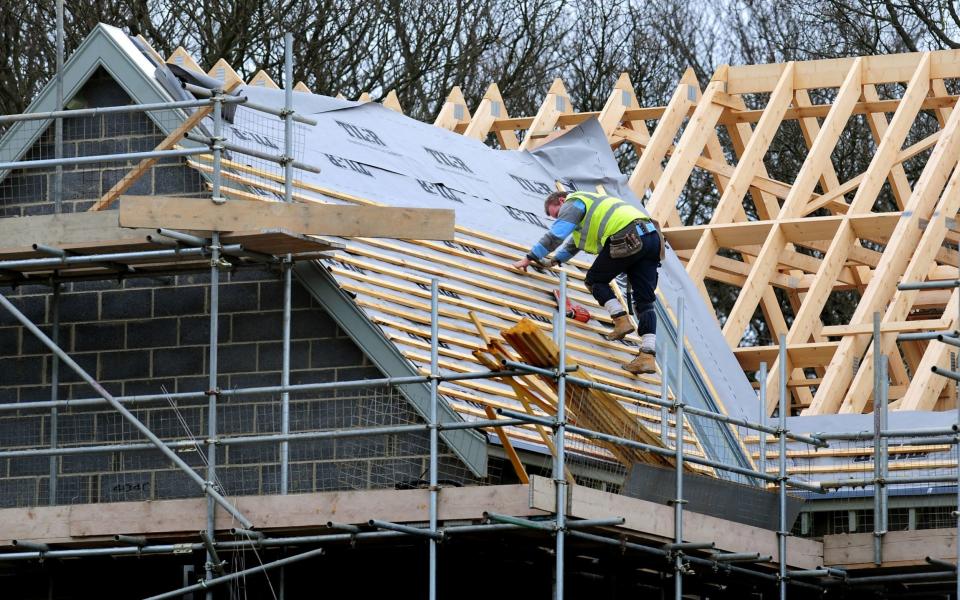Post-lockdown construction boom sends prices spiralling

Builders are being hammered by surging materials prices as growth in the industry hits a seven-year high.
Huge demand for construction companies and global trade disruption have sent costs rising at their fastest pace for 24 years as companies race to secure the goods they need to build, according to the data company IHS Markit.
The jump is likely to ultimately drive up prices for families paying for building or renovation work, while rocketing demand is also delaying deliveries and making subcontractors harder to find. It follows widespread reports of firms struggling to get hold of bricks and timber.
Jan Crosby, head of infrastructure, building and construction at KPMG, said the growth spurt in part reflects surging house prices.
He said: “With the stamp duty holiday ending soon, house prices remain high, which means the pressure is on to build more residential projects and new housing developments, and the sector is more than responding.
“As confidence in the UK economy increases the commercial construction sector is bouncing back to meet client demand, and national infrastructure projects are pressing ahead.”
Construction rebounded better than most industries last year as builders rapidly learned how to operate within Covid guidelines, and the latest data suggest this trend is continuing.
Markit's purchasing managers index (PMI) survey climbed to 64.2 last month, up from 61.6 in April. Any score above 50 indicates growth, and this represents the fastest pace of expansion in more than six years.
The index for new orders rose to its highest level since the survey began in 1997, indicating companies will remain busy for some time.
Companies are now rushing to boost capacity, with hiring rising at its fastest pace in six years.
Duncan Brock, of the Chartered Institute of Procurement and Supply which compiles the index with Markit, said businesses are also seeking new sources of materials.
He said: “With inflation for goods and raw materials at a 24-year high, companies will be concerned that much-needed profits will be eaten away as building projects take shape and could be held up by some of the longest delivery times on record.
"Skills shortages are also becoming a problem, with recruiters finding talented labour hard to find, as job creation was at robust levels and the threat of staffing cutbacks has become a distant memory."
Construction is not the only area where hiring is booming, according to job advertisement data from Adzuna and the Office for National Statistics.
This found there were 85pc more adverts for construction and trades jobs last week than in February 2020, just before the pandemic struck.
There are almost three-times as many logistics, transport and warehousing roles available, while manufacturing vacancies stand at 250pc of pre-Covid levels.
Almost every industry is hiring more now than it did before the pandemic, with adverts for domestic help up by 90pc and even vacancies in HR and recruitment more than 40pc higher.

 Yahoo Finance
Yahoo Finance 